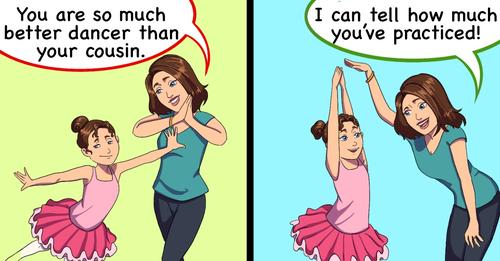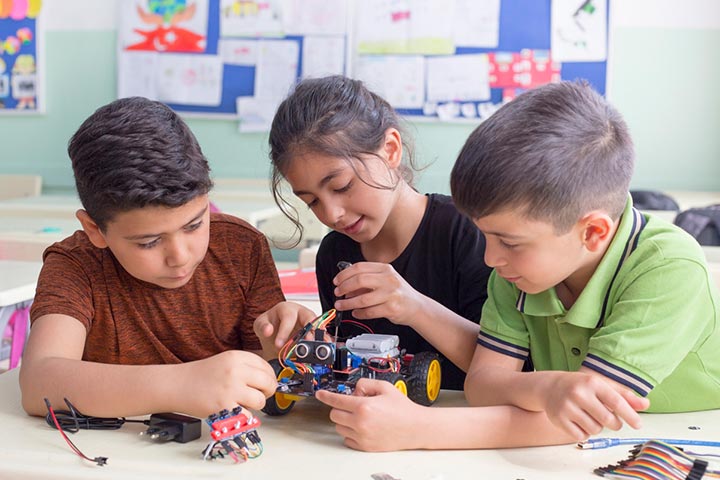
Kids learning about self-love is a beautiful way to build a confident personality. But what if their self-love turns out to be a way of demeaning others and making themselves feel superior to others? Well, narcissism is a behavior that can damage the way a person sees the world around them. A person’s upbringing plays an essential role in forming this worrisome ideology. But it’s never too late when your kids show symptoms of it, as you can transform their mentality using clever tricks and habits.
In this article, we’ll discuss some parenting tips to help you avoid a narcissistic child.
1. Don’t Over-Appreciate Them
There is no doubt that everyone is unique in some manner. Make sure your kids are aware of that. But at the same time, don’t lead them to believe that they are superior, or more worthy than everyone else. No one will have to inform them if they genuinely are a wonder. If they aren’t, which, let’s face it, most children aren’t, telling them that they are merely giving them a false sense of self.
2. Give Them Ample Love
Loving your kids isn’t a sin, but over-appreciating them is. There’s no harm in occasionally telling them how much you care. It improves communication and helps families get closer. It can be damaging if they don’t feel loved. Give them encouraging words, especially after failure. Instead of giving children the impression that they are greater or better than others, you foster a sense of value as individuals, building a foundation for healthy self-esteem.
3. Praise Them In The Right Way
It’s common for kids to nag their parents for care and praise continuously. But there is a very small difference between constantly telling a child that they are the most attractive and intelligent person in their classroom and expressing that they are doing something well, that they are valuable, or that they should care about other kids. Praising can boost their self-esteem significantly, but you must use it wisely because too much praise can have the opposite effect.
4. Introduce Them To Team Work
Allow your kids to participate in group activities where they can mingle with grownups and other kids. Kids who cannot interact with individuals of all ages may have aggressive and egotistical personality traits. The best course of action is to allow them to socialize with their friends while being watched by their grandparents. As a result, they develop communication skills that will help them mature into adults.
5. Encourage Them To Show Empathy
Narcissists are mainly bothered with themselves and their own emotions and desires; they don’t pay any attention to what other people think or feel. So your kid has to know what empathy is to develop it. They can grow emotionally and socially by having genuine compassion for others and understanding how they feel. Keep in mind that you serve as their main role model. Thus you must lead by example in all of your daily activities.
6. Setting Limits
Children learn that the world does not revolve around their wants when boundaries and limits are established. They must understand that saying “no” means “no” and that they are not automatically entitled to something simply because they desperately want it. A narcissist will constantly want to achieve what they want and do everything their way. Because of this, parents need to learn how to create boundaries without limiting their children’s independence or beliefs. Parental limits enable children to mature and know that you can’t always get what you want, which will help them learn patience.
7. Never Compare Them
A child can develop narcissistic behavior when constantly judged or compared to others. It conveys to our kids the idea that they should always be successful or the ones no one ever can beat. The outcome? They are forced to try for utter impossibility, develop a sore losing attitude, and lose empathy because they believe they must win over the other kid to show them their place.
8. Don’t Let Them Gaslight
The term “gaslighting” describes narcissistic behavior in which the offender distorts reality to match their interpretation of events. Over time, this kind of emotional neglect can cause someone to doubt their values and morality. Speak it out with your kid if you believe they are attempting to gaslight you or anyone you know. Set firm boundaries and talk to them about their actions. As an alternative, you can consider consulting a therapist.
It’s challenging to raise a child to be a respectable person in the future, but to what level do you believe it falls on the parents if the kid is narcissistic? No one can measure that, but if you find your kid showing any signs of a narcissistic personality, now you know how to overrule this behavior and turn them into the perfect angel again. In the comment section below, let us know what else you’d advise to save these young minds from developing such a demeaning mindset.








